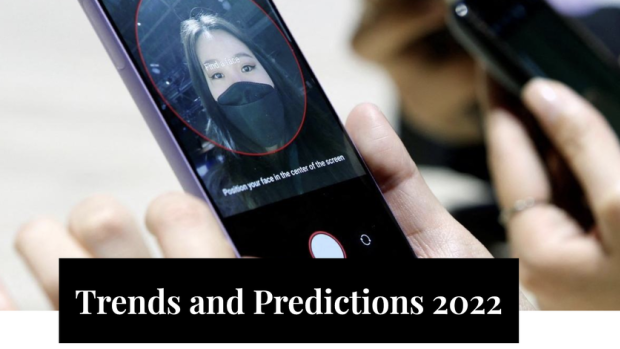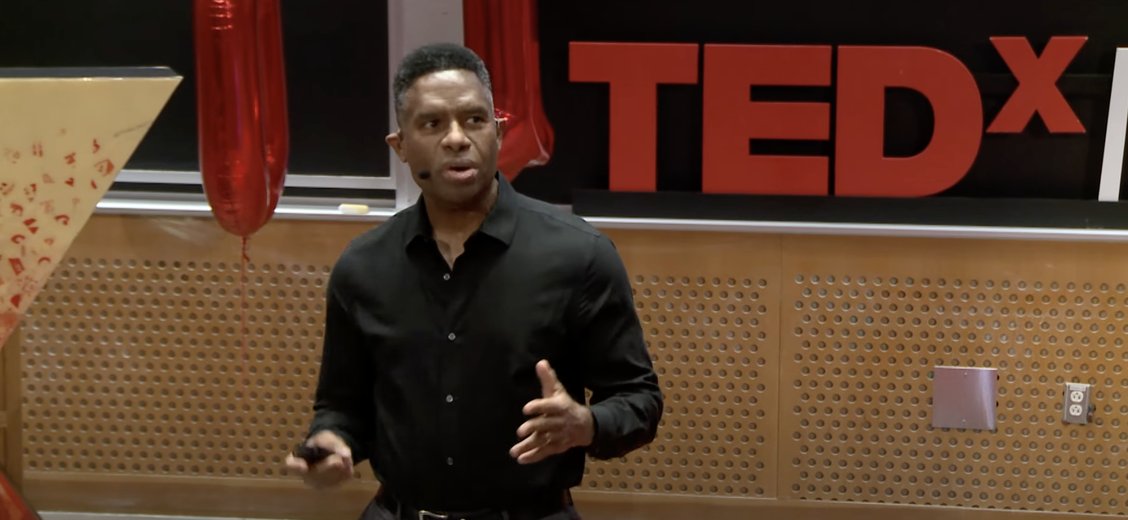AI & Local News newsletter, issue 5

Hello, Welcome to the fifth issue of the AI & Local News newsletter and our first of 2022. This issue is packed with AI journalism trends, AI tools, updates and upcoming events.
In addition to AI news, I want to highlight a few recent local news projects: the announcement of the Houston Local News Initiative, the acquisition of the Chicago Sun-Times by Chicago Public Media, and the launch of Capital B’s first local site in Atlanta. It’s a dynamic time for local media and here we want to focus on how new technology can be part of a sustainable future for local news.
I’m excited to keep growing this community of people working with artificial intelligence and local news with you all and our partners at Associated Press, Brown Institute’s Local News Lab, and Partnership on AI. Please get in touch if you have ideas about how we might help meet your needs and learn from each other.
Matt MacVey
Community & Project Lead, AI & Local News
NYC Media Lab
Matt@NYCMediaLab.org
PS If this email was forwarded to you, you can easily sign up here. Take a look at our newsletter archive to learn more.
Partner News
Brown Institute’s Local News Lab: “December was a busy month for the Local News Lab. We presented our model prototypes to our partners at The Philadelphia Inquirer and Texas Tribune to ensure the machine learning that underpins it is surfacing recommendations that meet our partners’ needs. A lot of hard work preceded this demo as our engineering and data science team scaled our system to train on much higher traffic levels than it could previously.
This month we have been focusing our deployment and A/B testing plans and have just this week run our equity evaluation workshop with the team at The Inquirer, which surfaced some interesting conversation around the nuance of certain newsroom values and the challenges data and analytics teams face in measuring them.”
NYC Media Lab: “We’re excited to get started with the first cohort of the AI & Local News Challenge and launch expanded community resources this year.
Now hiring. We currently have a few positions open at the NYC Media Lab. Check out our jobs page to learn more.”
Partnership on AI: “PAI published a blog post on how to share tools to spot deep fakes. We will be publishing our thought-provocation series on AI and Local News later this week, where we asked experts across media, academia, civil society, and industry to discuss how AI will change the way local news is produced, distributed, and/or shared.
The AI and Media Integrity team is also hiring two full-time Program Leads who will be responsible for project management within multiple workstreams of AIMI, including our AI and Local News work.”
News

More than two-thirds of media companies in the U.S. see AI as a critical tool in helping attract and retain readers, according to a Reuters survey. This January, the Reuters Institute published “Journalism, media, and technology trends and predictions 2022,” an in-depth report about the next frontiers of journalism and innovation. According to a Reuters Institute poll, “eight-in-ten media companies say that AI will be important for better content recommendations (85%) and newsroom automation (81%)” and “more than two-thirds (69%) see AI as critical on the business side in helping to attract and retain customers.”
Here are some areas worth keeping an eye on, according to the Reuters Institute:
-
Images: DALL-E is an OpenAI machine learning program able to create images from a textual description.
-
Video: We will see a substantial improvement in Wibbitz and Wochit, two programs able to create rough-cut videos out of text.
-
Summaries and smart brevity: We will have more bullet points in news articles, visual stories as opposed to text, and mixed media story formats made popular by social media.
-
New approaches to content management: 2022 is the year where we will experience a new way to do journalism with a massive use of “nested blocks” of content, in order to better connect and assemble stories thanks to programs like Arc from the Washington Post and Optimo from the BBC.
-
Bridging the AI divide: Media companies will experiment with languages other than English. We will see improvements in less widely-spoken languages such as Swedish, and more content in widely-spoken languages like Arabic and Spanish;
-
Productization makes taking-up AI easier: We will experience a wide use of AI in small newsrooms.
-
Cooperation and learning: AI will become more widespread in newsrooms thanks to webinars, showcases, papers by research centers and universities including JournalismAI and International News Media Association (INMA).
-
Improving AI reporting literacy: More and more journalists will be able to use AI programs in order to report on and analyze big sets of data.
New AI and free press standards fortify the fight against autocracy
J. Brian Atwood, visiting scholar at the Watson Institute at Brown, highlights the significance of the recent UNESCO agreement on a global standard on the ethics of AI–with particular emphasis on the ramifications for social media and the spread of dangerous misinformation.
Can we protect our data in the AI era?
There is an inherent tension between the EU’s landmark General Data Protection Regulation (GDPR) and the development of AI technology, which requires data to develop and yet is likely to involve those same privacy risks the GDPR attempts to shield EU citizens from.
European Data Journalism Network
Events
Can AI be Ethical?
Date: February 3
More information
Hosted by the British Computer Society, Professor Nigel Shadbolt of the University of Oxford will discuss recent developments and deployments of AI and the ethical issues they raise. It will outline various approaches to constructing ethical guidelines and the need for research into the foundations of AI ethics now and in the future.
News Product Alliance Summit 2022
Date: March 10-11
Call for Participation
News Product Alliance, a community of support and practice for news product thinkers, will host its annual summit virtually on March 10 and 11th. The call for participation is open until Feb 10.
EmTech Ai Conference
Date: March 29-30
More information
Digital transformations have triggered a data explosion that only AI can handle. To scale AI and remain competitive, organizations need to have the right strategies, data policies, and algorithms. MIT Technology Review’s AI conference, EmTech Digital, provides strategies, insights, and emerging AI techniques to put AI to work for business.
Call for proposals Collaborative Journalism Summit
Date: May 19-20
Deadline for pitches: Feb 28
Pitch form
Collaborative Journalism Summit 2022 will be held in person in Chicago on May 19 and May 20. Sponsored by Montclair State University and Columbia College Chicago, it promises two days of lightning talks, workshops and participatory discussions about a wide array of Collaborative Journalism. You can pitch your idea here.
News Briefs
New AI Q&A Model Macaw
The Allen Institute for AI (AI2) has published a collection of examples comparing answers generated by their question-answering model Macaw with answers from OpenAI’s GPT-3. Macaw (Multi-angle c(q)uestion answering) is available here.
Taboola Launches “Homepage For You” Artificial Intelligence Technology
“Taboola… announced a new milestone for its publisher platform that adds A.I. to power editorial recommendations on publisher homepages.” Publishers McClatchy, The Independent, and Estado de Minas are giving the new tool a try.
Health news publisher STAT partners with AI startup Applied XL to launch platform
“STAT Trials Pulse uses machine learning and editorial-driven algorithms to help life sciences and health care professionals identify, in real-time, the most important updates happening in the clinical trials space.”
Opinions about AI vary depending on countries’ level of economic development
An Ipsos Mori survey for the World Economic Forum unveils a mix of positive feelings and concerns about AI’s impact on people’s lives. On average, six out of 10 adults from 28 countries expect that products and services using artificial intelligence will profoundly change their daily life in the next three to five years. Both personal and national economic status determines attitudes towards AI, the study finds: for instance, 76% of those surveyed in China trust AI-powered companies, compared to 35% in the United States.
Podcasts
Predicting the future of AI
Last year we saw policymakers pitch their visions about how they want to regulate artificial intelligence. This year they will have to get concrete as debates around AI rules heat up on both sides of the Atlantic. Here’s AI: Decoded’s six predictions for AI policy in 2022.
Videos
AI and the Future of Racial Justice

In this talk MIT Visiting Professor S. Craig Watkins addresses one of the fundamental challenges in the AI Ethics debate: discrimination against marginalized populations. How do we build models that address and even tackle systemic racism? Watkins currently is leading a team that will address the issue of artificial intelligence and systemic racism in a new six-year program funded by the Office of Vice President for Research at the University of Texas at Austin.
Henry Kissinger and Eric Schmidt discuss the transformational power of AI
Former US Secretary of State Henry Kissinger - and recent author of The Age of AI: And our Human Future - and Eric Schmidt, Former Google CEO and co-author of The Age of AI, in conversation for the Council on Foreign Relations’ Annual Macolm and Carolyn Wiener Lecture on Science and Technology.
Food for Thought

A New Use For AI: Summarizing Scientific Research For Seven-Year-Olds. Academic writing often has a reputation for being hard to follow. But what if you could use machine learning to summarize arguments in scientific papers so that even a seven-year-old could understand them? That’s the idea behind tl;dr papers — a project that leverages recent advances in AI language processing to simplify science.
The Rise of A.I. Fighter Pilots. From autonomous pilots to enhancing enemy targeting, AI is driving a worldwide arms race already: in 2020, global spending for military A.I. was estimated to exceed six billion dollars, and is expected to nearly double by 2025. But can the technology be trusted?
AI Can Now Craft Original Jokes — And That’s No Laughing Matter. Jon the Robot, a brainchild of Naomi Fitter, an assistant professor in the School of Mechanical, Industrial and Manufacturing Engineering at Oregon State University, performs onstage. Jon delivers the same jokes in the same order, for now — but is learning to respond to its audience based on the noise levels in the room. Making Jon a successful comedian, however, requires getting down to the nuts and bolts of human humor.
Former Google scientist says the computers that run our lives exploit us — and he has a way to stop them. Now a Silicon Valley upstart says he has a fresh approach to the problem. Alan Cowen, a former Google data scientist with a background in psychology, has created a research company, Hume AI, and a companion not-for-profit that he says can help make the whole messy business of AI more empathetic and human. By getting trained on hundreds of thousands of facial and vocal expressions from around the world, artificial intelligence on the Hume platform can react to how users are truly feeling and cater more closely to their emotional needs.
Quote
“…I do not believe that it is appropriate to have a fully autonomous killing machine that is making decisions about who gets to live and die. That, to me, is a dystopian scenario that we can easily avoid by simply not arming robots. That is common sense, right?
…Ultimately, these systems do not exist in a vacuum. They exist in society, and societies; our society is democratic, and so that is why we need to consider many different viewpoints before making unilateral decisions about what and who we are.”
- Liz O’Sullivan in the Harvard Political Review.
O’Sullivan is an expert on fair algorithms, surveillance, and artificial intelligence and the current CEO of AI company Parity. In 2019, she publicly quit her job at Clarifai because of their work enabling lethal autonomous weapons. Since then, she has been a major figure working to make AI fairer and less biased.
The AI and Local News partners are Associated Press, The Brown Institute’s Local News Lab, NYC Media Lab and Partnership on AI.
The initiative is funded by Knight Foundation.
Newsletter produced by Angelo Paura



